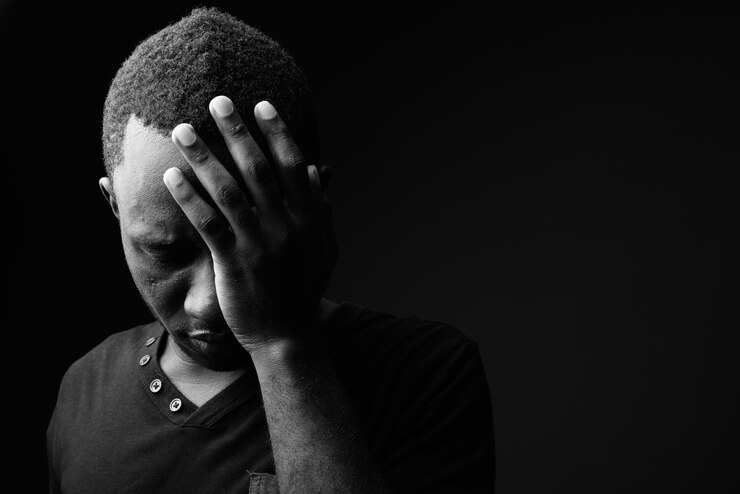On July 17, 2022, in Osogbo, Osun State, Bolu Bamidele was set ablaze by his wife, Ifeoluwa Bamidele. Report says the victim had returned from Cairo, Egypt, to celebrate his wife’s birthday when the sad incident happened.
Ifeoluwa accused him of infidelity, which led to an argument. When it was dusk, she sprinkled some petrol in their bedroom, locked her sleeping husband and set the house ablaze.
Bamidele’s screams drew the attention of the neighbours. By the time he was rushed to the hospital, it was too late.
A similar incident happened in Kofar Dumi, in Bauchi State, early this month. Aliyu Mohammed had an argument with his wife when she pulled out a knife and stabbed him.
Bamidele and Mohammed’s incidents are only a few of the many cases of abuse against male spouses, with many going unreported
Domestic Violence is often portrayed as a gendered crime, and most times, that is correct-1 in 4 women has experienced abuse from their intimate partner, compared to 1 in 9 men, but this has forced many men into silence, with many choosing to die than seek help.
Domestic violence
According to the United Nations, Domestic Violence can be defined as a pattern of behaviour in any relationship that is used to gain or maintain power and control over an intimate partner. These behaviours are deployed to frighten, terrorize, manipulate, humiliate, hurt or injure the other party.
In Nigeria, 25% of men have suffered domestic abuse. Yet, the social stigma surrounding domestic violence is stronger when a victim is a man and the abuser is a woman.
Men are silenced or laughed at, often by other men, when they open up about their experiences.
And because they are forced into silence, the abuse victims are not only left to deal with the physical and mental/emotional trauma. Post-traumatic stress disorder and depression symptoms, and increased anxiety are observed among survivors of domestic violence.
Its adverse impact extends to the individual’s immediate family and society; children who witnessed violence against one of their parents are at risk of developing behavioural problems in the future.
These children are prone to be hostile, angry, anxious and mentally unstable. Picture a large number of children growing up to start their own families.
Domestic abuse is a learned behaviour. Female children who have witnessed their fathers being abused by their mothers are at risk of doing the same thing to their partners.
Equal as victims
A paper on the spate of domestic violence in Nigeria posits that victims “cut across all ages, educational levels, and socioeconomic classes.” and insist that “male victims of domestic violence deserve the same recognition, sympathy, support and services as do female victims”.
Ironically, one of the reasons why male victims get little or no attention is because of patriarchy. In a society where men are expected to show strength and lead, it would be considered humiliating to hear that a man was beaten by his partner. This societal stigma often hinders men from speaking out.
Helping male victims of domestic violence requires accepting their existence. There is a need to listen and Believe them. These victims deserve a safe and non-judgmental space to share their experiences.
Also, there is a need for helplines and support services specifically designed for male domestic violence victims and a campaign to encourage them to reach out for assistance.
In addition, male victims need support reporting the abuse to law enforcement. Law enforcement officers must also know how to work with local authorities to ensure they respond appropriately and sensitively to male victims.
Healthcare providers must also be trained to recognise signs of domestic violence in male patients and offer appropriate support and referrals.
To tackle the general problem of domestic abuse, all victims should be considered as equals.
On July 17, 2022, in Osogbo, Osun State, Bolu Bamidele was set on fire by his wife, Ifeoluwa Bamidele, following her accusations of infidelity. Despite being rushed to the hospital, he did not survive. A similar incident of domestic violence occurred in Bauchi State, where Aliyu Mohammed was stabbed by his wife after an argument.
These instances highlight the issue of domestic abuse against male spouses, often unreported due to social stigma. In Nigeria, 25% of men have experienced domestic abuse, but societal expectations and ridicule prevent many from seeking help. Such abuse leads to serious psychological issues, including PTSD and depression, and adversely affects children who witness such violence, risking future behavioral problems and perpetuating the cycle of abuse.
To assist male victims, there is a need for societal recognition, support services, specific helplines, proper training for law enforcement, and healthcare providers to address their needs. All victims of domestic abuse should be treated equally, with efforts made to ensure their safety and well-being.






